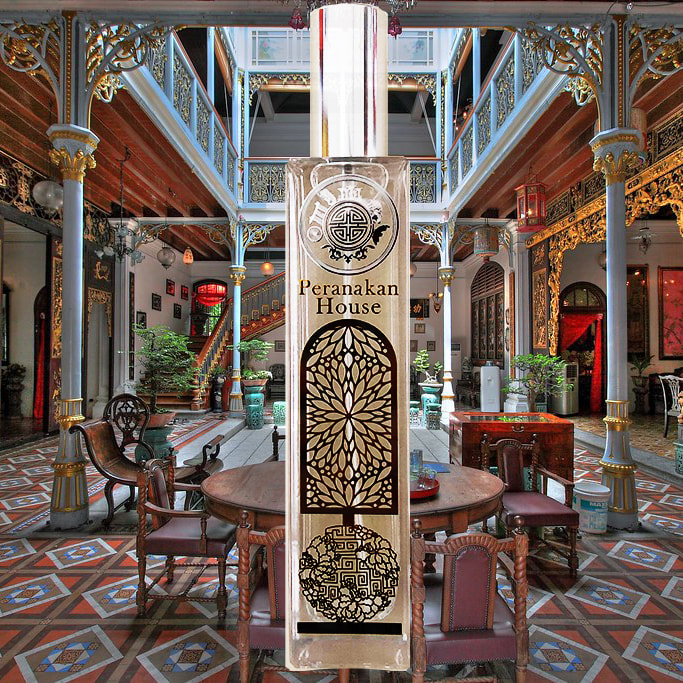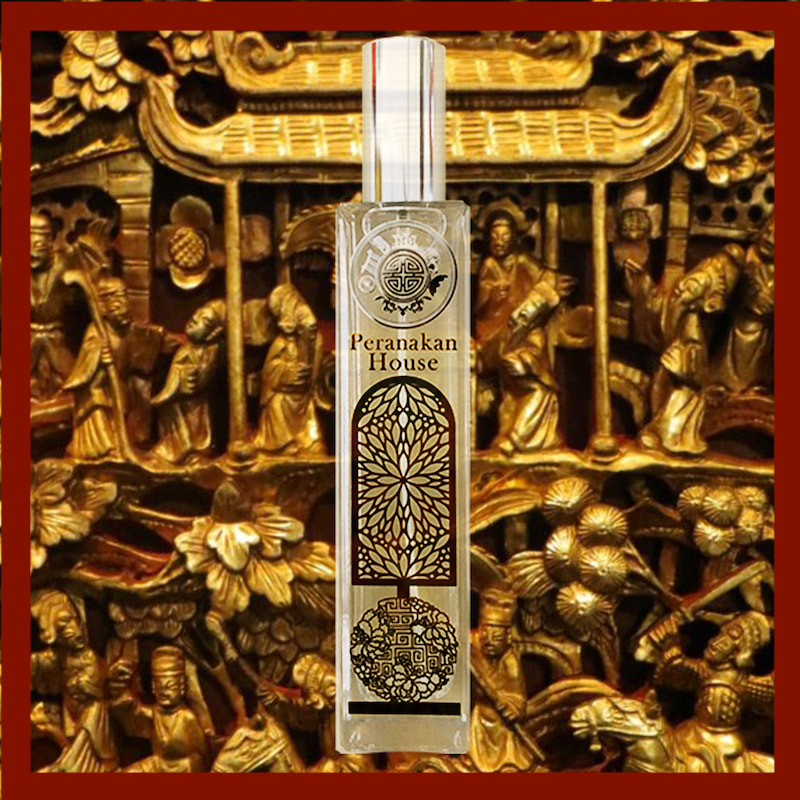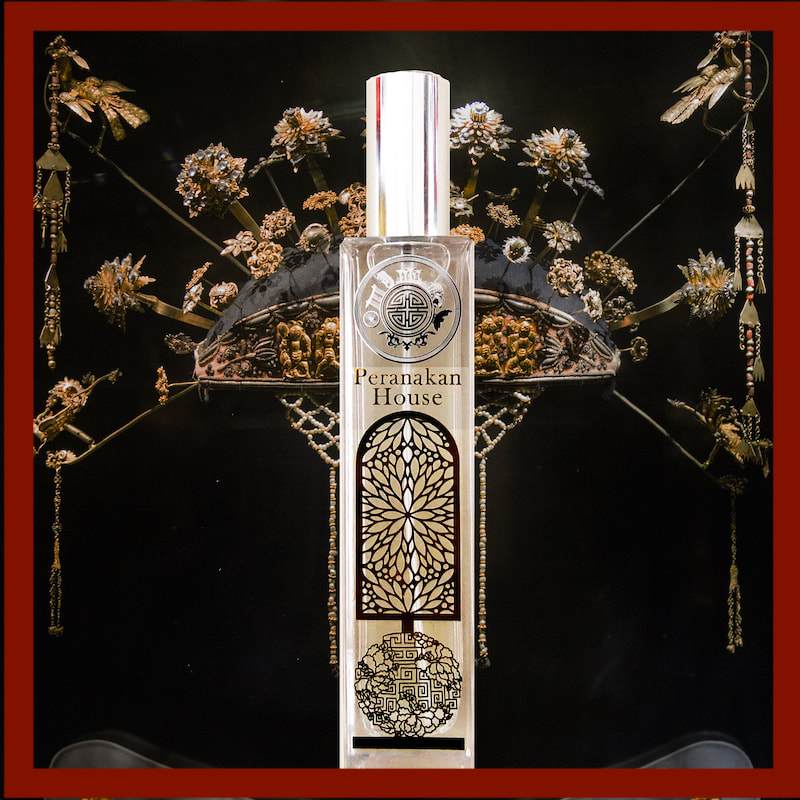To experience augmented reality, please open the Facebook-app using QR code and point to the image below
Peranakan Culture: A Vibrant Tapestry of Tradition and Heritage
Peranakan culture, also known as Straits Chinese or Baba-Nyonya culture, is a captivating and rich cultural heritage that has flourished for centuries in Southeast Asia. This unique culture, a fusion of Chinese, Malay, and Indonesian influences, has evolved over time, creating a vibrant tapestry of traditions, customs, cuisine, and art. In this 1000-word exploration, we will delve into the history, customs, cuisine, and artistry that define Peranakan culture, and discover the enduring legacy it continues to offer to the world.
Peranakan culture, also known as Straits Chinese or Baba-Nyonya culture, is a captivating and rich cultural heritage that has flourished for centuries in Southeast Asia. This unique culture, a fusion of Chinese, Malay, and Indonesian influences, has evolved over time, creating a vibrant tapestry of traditions, customs, cuisine, and art. In this 1000-word exploration, we will delve into the history, customs, cuisine, and artistry that define Peranakan culture, and discover the enduring legacy it continues to offer to the world.
Historical Roots
Peranakan culture traces its origins back to the 15th century when Chinese immigrants began settling in the Indonesian archipelago and the Malay Peninsula. These Chinese immigrants intermarried with local Malay and Indonesian populations, leading to the birth of a distinct community known as the Peranakan or Straits Chinese. The term "Peranakan" itself means "locally born" in Malay, underscoring the cultural blend that characterizes this unique group
Peranakan culture traces its origins back to the 15th century when Chinese immigrants began settling in the Indonesian archipelago and the Malay Peninsula. These Chinese immigrants intermarried with local Malay and Indonesian populations, leading to the birth of a distinct community known as the Peranakan or Straits Chinese. The term "Peranakan" itself means "locally born" in Malay, underscoring the cultural blend that characterizes this unique group
Language and Identity
One of the most distinct features of Peranakan culture is its language, Baba Malay (also known as Baba Patois or Straits Malay). It is a creole language that combines elements of Malay, Hokkien Chinese, and other local languages. This linguistic fusion reflects the diverse heritage of the Peranakan people, as they navigated between their Chinese roots and their Southeast Asian environment.
One of the most distinct features of Peranakan culture is its language, Baba Malay (also known as Baba Patois or Straits Malay). It is a creole language that combines elements of Malay, Hokkien Chinese, and other local languages. This linguistic fusion reflects the diverse heritage of the Peranakan people, as they navigated between their Chinese roots and their Southeast Asian environment.
The Peranakan Identity
Peranakan culture is renowned for its vibrant and intricate batik textiles and sarongs, which are intricately designed and beautifully handcrafted. These textiles play a significant role in Peranakan identity, with different patterns and colors symbolizing various stages of life and significant events. The Peranakan identity is further expressed through distinctive clothing, intricate jewelry, and an array of accessories that showcase their cultural pride.
Peranakan culture is renowned for its vibrant and intricate batik textiles and sarongs, which are intricately designed and beautifully handcrafted. These textiles play a significant role in Peranakan identity, with different patterns and colors symbolizing various stages of life and significant events. The Peranakan identity is further expressed through distinctive clothing, intricate jewelry, and an array of accessories that showcase their cultural pride.
Customs and Traditions
Weddings are of paramount importance in Peranakan culture, and they are celebrated with elaborate ceremonies that span several days. These weddings are a showcase of the rich customs and traditions of the Peranakan people. A key element of Peranakan weddings is the 'sirih junjung,' a decorative arrangement of betel leaves and areca nut flowers, symbolizing the union of the bride and groom.
Weddings are of paramount importance in Peranakan culture, and they are celebrated with elaborate ceremonies that span several days. These weddings are a showcase of the rich customs and traditions of the Peranakan people. A key element of Peranakan weddings is the 'sirih junjung,' a decorative arrangement of betel leaves and areca nut flowers, symbolizing the union of the bride and groom.
Cuisine: A Culinary Delight
Peranakan cuisine, or Nyonya cuisine, is a tantalizing fusion of Chinese and Malay flavors, resulting in a unique and delectable culinary tradition. Some iconic dishes include laksa (a spicy noodle soup), rendang (a flavorful beef stew), and otak-otak (grilled fish cake). These dishes are characterized by their rich, aromatic spices and bold flavors, making them a true delight for the palate.
One of the most famous Peranakan dishes is 'nasi lemak,' a fragrant coconut rice dish served with a medley of condiments, including sambal (spicy chili paste), anchovies, peanuts, and hard-boiled or fried egg. This dish epitomizes the balance of flavors that Peranakan cuisine is known for and is considered a national dish in Malaysia.
Peranakan cuisine, or Nyonya cuisine, is a tantalizing fusion of Chinese and Malay flavors, resulting in a unique and delectable culinary tradition. Some iconic dishes include laksa (a spicy noodle soup), rendang (a flavorful beef stew), and otak-otak (grilled fish cake). These dishes are characterized by their rich, aromatic spices and bold flavors, making them a true delight for the palate.
One of the most famous Peranakan dishes is 'nasi lemak,' a fragrant coconut rice dish served with a medley of condiments, including sambal (spicy chili paste), anchovies, peanuts, and hard-boiled or fried egg. This dish epitomizes the balance of flavors that Peranakan cuisine is known for and is considered a national dish in Malaysia.
Artistry and Craftsmanship
Peranakan culture is renowned for its artistic expressions, from beautifully decorated ceramics to ornate wooden carvings. The Peranakans have a long history of craftsmanship, with their homes adorned with intricate designs and vibrant colors. This artistry extends to their traditional pottery, known as "Peranakan ware," which features intricate patterns and vibrant colors, often with phoenix or peony motifs.
Intricate beading is another hallmark of Peranakan culture, with elaborately beaded shoes, handbags, and accessories that showcase incredible skill and attention to detail. These beadwork creations are often passed down through generations as cherished heirlooms.
Peranakan culture is renowned for its artistic expressions, from beautifully decorated ceramics to ornate wooden carvings. The Peranakans have a long history of craftsmanship, with their homes adorned with intricate designs and vibrant colors. This artistry extends to their traditional pottery, known as "Peranakan ware," which features intricate patterns and vibrant colors, often with phoenix or peony motifs.
Intricate beading is another hallmark of Peranakan culture, with elaborately beaded shoes, handbags, and accessories that showcase incredible skill and attention to detail. These beadwork creations are often passed down through generations as cherished heirlooms.
Religion and Spirituality
Peranakan culture is predominantly associated with Chinese folk religion and Buddhism, but it also incorporates elements of Malay and indigenous beliefs. Ancestral worship is a significant aspect of Peranakan spirituality, with families maintaining ancestral altars and performing rituals to honor their forebears. These rituals often involve offerings of food, incense, and prayers, creating a strong connection between the living and the deceased.
Peranakan culture is predominantly associated with Chinese folk religion and Buddhism, but it also incorporates elements of Malay and indigenous beliefs. Ancestral worship is a significant aspect of Peranakan spirituality, with families maintaining ancestral altars and performing rituals to honor their forebears. These rituals often involve offerings of food, incense, and prayers, creating a strong connection between the living and the deceased.
Legacy and Preservation
While Peranakan culture has evolved and adapted over the centuries, it faces challenges in preserving its unique traditions in the modern era. In an increasingly globalized world, younger generations may be less connected to their Peranakan roots. However, efforts are being made to document and preserve this rich heritage, including the establishment of museums and cultural centers dedicated to Peranakan history and art.
While Peranakan culture has evolved and adapted over the centuries, it faces challenges in preserving its unique traditions in the modern era. In an increasingly globalized world, younger generations may be less connected to their Peranakan roots. However, efforts are being made to document and preserve this rich heritage, including the establishment of museums and cultural centers dedicated to Peranakan history and art.
Peranakan culture is a vibrant and dynamic fusion of Chinese, Malay, and Indonesian influences that has flourished in Southeast Asia for centuries. Its unique language, customs, cuisine, and artistry reflect the rich tapestry of this cultural heritage. While facing challenges in the modern world, Peranakan culture continues to captivate and inspire those who appreciate its beauty and historical significance. As we celebrate the diversity of our world's cultures, Peranakan culture stands as a testament to the enduring power of tradition and heritage.
Join Scentopia, Sentosa's latest tourist attraction wonderful orchid scent crafting, fragrance tour, bridal shower or corporate team building which includes perfume making onsite and offsite, beach activities and more. We also serve primary school learning journey, secondary students and pupil on industrial excursions. Know more about our orchids perfume bar or therapeutic orchid scents and other wellness aromas. Conatct Perfume workshop or book a scent crafting session here.



